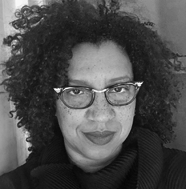Cavafy in Compton/Closet Anthem Self-Portrait at 16
A translation of Konstantin Cavafy’s “I was asking about the quality”
For Felicia, Kipper, Oscar, and Kevin.
And for Ted and Barron, in memoriam
I came out
of the office
where I had been
hired in another shitty, low-paying job
(My weekly pay was nothing more
than fifty dollars a week, most from tips).
With my waitress shift over, I came out
at seven and walked slowly. I fell out
into the street, handsome, but compelling.
It felt as if I had finally reached the full potential
of my own beauty (I’d turned
sixteen the previous month).
I kept wandering all around
the newly-cemented streets,
the quiet and old black alleys, past
the cemetery leading to our home.
But then, as I’d paused in front of a clothing store
where some skirts were on sale
(polyester, cheap), I saw this face
inside—a girl—whose eyes urged me
to come inside. So, I entered—
pretending I was looking
for embroidered handkerchiefs.
I was asking about the quality—
of her handkerchiefs—how much
they cost—in a whispery voice breaking open
with desire—and accordingly came her
shop-girl answers—rote, memorized—but beneath her
words, her eyes kept ablaze: Yes.
Mine, too, were a psalm of consent.
We kept talking about the handkerchiefs,
but all the while our one and only goal was this:
to brush each other’s hands—quickly—
over the handkerchiefs—to lean
our faces and lips
nearer to each other, as if
by accident. We moved quickly,
cautiously, yet deliberately—
in case her grandfather—sitting in
the back—were to suspect something.
Copyright © 2025 by Robin Coste Lewis. Originally published in Poem-a-Day on May 19, 2025, by the Academy of American Poets.
“This poem is actually a translation (a translation with which I took great liberties) of another poem by the great Alexandrian Greek poet, Constantin Cavafy, the title of which has been often translated as ‘He Asked About the Quality’ or ‘He Was Asking About the Quality.’ As in so many of his poems, in his original poem, Cavafy glides slowly and meticulously along the rim of unsanctioned desire, a desire that is nevertheless exquisite, perhaps made even more so by the intense and beautiful invisible otherness. His writing saved and inspired me. And so, I wrote this poem because I wondered, what if I were Cavafy, or Cavafy were me—a young Black girl brimming with desire, growing up in Compton, in another century, on another continent, just as repressed as all the others. What if?”
—Robin Coste Lewis

